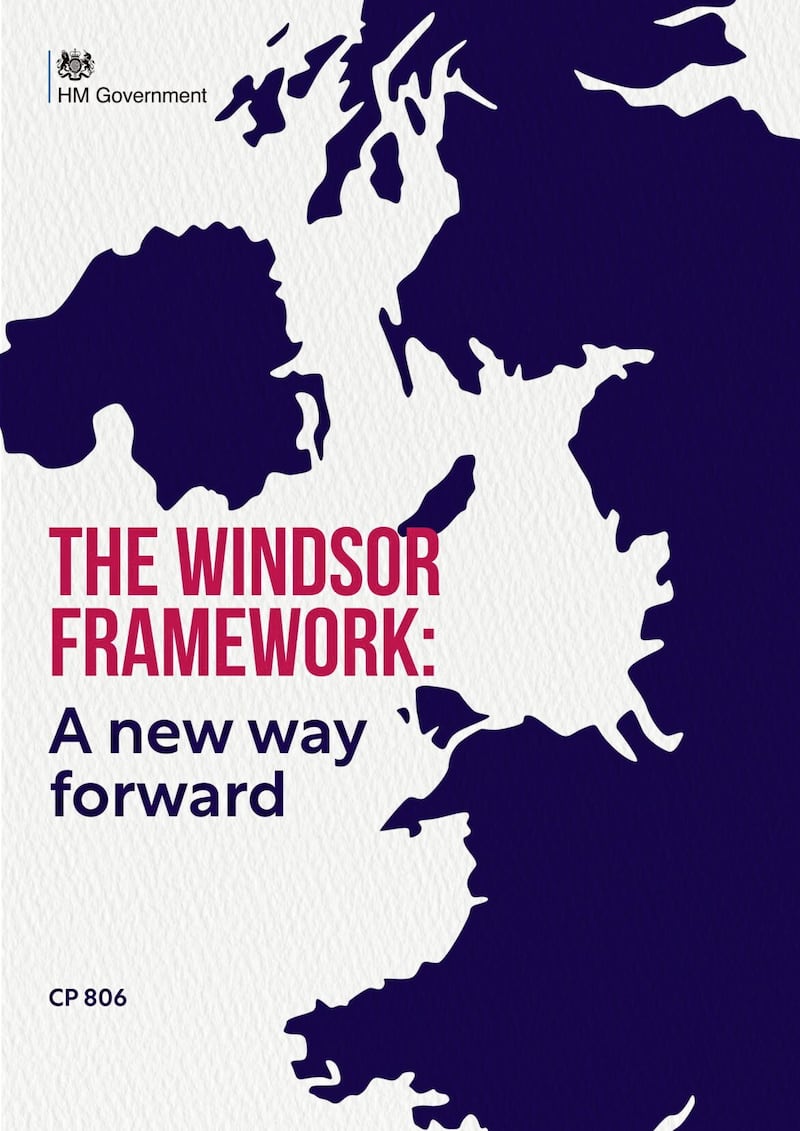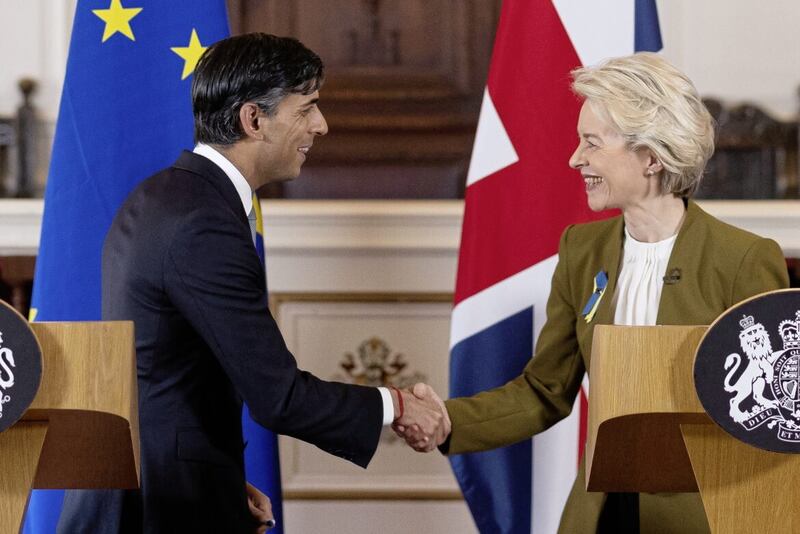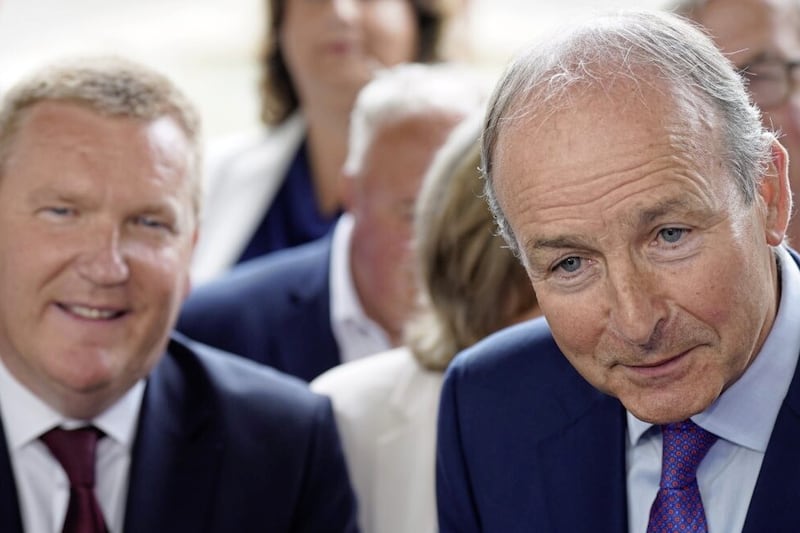Monday was a big day for the parish. We had Rishi Sunak and Ursula von der Leyen telling us about the beginning of a new chapter in the relationship between the EU and British government and reminding us that they are “allies, trading partners and friends”. It was actually refreshing to see some positivity for a change from a British prime minister.
A number of local business organisations, including Derry Chamber of Commerce, the Brexit Working Group, Retail NI and the Federation of Small Businesses, have given the Windsor Framework a cautious welcome.
Likewise have most of the political parties with a “so far, so good” response and everyone reminding us the devil will be in the detail, or rather in the legal text of the framework.
On the other side of the room, Jim Allister is telling us the DUP’s seven tests leave them a lot of wiggle room and Baby Doc Paisley’s gut instinct was that the deal didn’t cut the mustard.
And so it begins…
The DUP says that it will take its time to study the legal text of the framework before it gives its verdict, and having set out the “seven tests” it insists any deal must meet in order for it to go back into power-sharing, it is only to be expected that it will take its time, particularly as this is a party who has a poor history of bringing its people along with it.

On Monday night, once again, we saw the attitude of the Westminster wing of the party being harder than the Stormont branch, so Donaldson will have to make a choice as to how and if he wants to sell this deal.
It's hard to say whether or not that call will be made in advance of the local council elections in May. On the one hand, the party may want to be out on the canvass saying that they are listening to what the public want them to do before they decide and an election campaign is the perfect way to ask people face to face. On the other hand, Jim Allister will have the legal text read and interpreted and pronounced upon within hours of publication and will use any dilly-dallying by the DUP as a stick to beat them with on the campaign trail.
As for the SDLP, Sinn Féin and Alliance, a huge concern will be whether the “Stormont Brake” amounts to a unionist veto and therefore leads to another Stormont break.
The safety net people will look for in the legislation is whether the brake mandates the British government to unilaterally veto any new EU rule or gives Westminster the power to make the final decision on whether or not to exercise its veto.

But between the jigs and reels of the coming weeks and months as the Windsor Framework is torn apart, spun, interpreted and mis-interpreted, it is worth remembering the facts in terms of how we got here.
Don’t let the DUP get away with saying that they always opposed the Withdrawal Agreement, which included the NI Protocol. When they had the chance to oppose it on January 9 2020 in Westminster, they abstained from voting (along with a number of members of the ERG), rather than put their opposition on the record. Very odd for a party insisting that people from the north should have a say in the laws that govern them.
It was the DUP and ERG who supported a hard Brexit with as much separation as possible between Britain and the EU. This inevitably meant a choice between a customs border on the island of Ireland or one in the Irish Sea. Boris Johnson’s government chose the latter and only at that stage did the DUP realise they had been once again conned by the Tories.
Then Johnson realised he couldn’t sell the deal he’d made and began trying to dismantle it. None of that changes the fact that the Tories were the ones who made the deal and anyone with a rudimentary understanding of Brexit would realise that trade between Britain and the island of Ireland would be impacted by it.
It’s worth reminding people too that the protocol only covers goods – it doesn’t relate to services, capital or people, so when politicians say the north is remaining part of the EU single market, that’s not correct.
Nor does the protocol or the Windsor Framework make the north subject to EU law. Only laws that are enacted by the Westminster parliament or the Stormont Assembly can apply in this part of Ireland as a result of Brexit, so if certain EU rules continue to apply here it is because one of those two legislatures has enacted law to make that the case.
Isn’t that test number four in terms of having a say in laws that govern the north taken care of for the DUP, assuming they actually vote of course?
But if these seven tests were actually designed to fail, then where does that leave the DUP?
Papa Doc Paisley eventually realised that there came a time politically when “never, never, never, never” was only a slogan and not a solution. The pressure needs to be maintained on the naysayers to provide those solutions if they say the Windsor Framework isn’t it.








